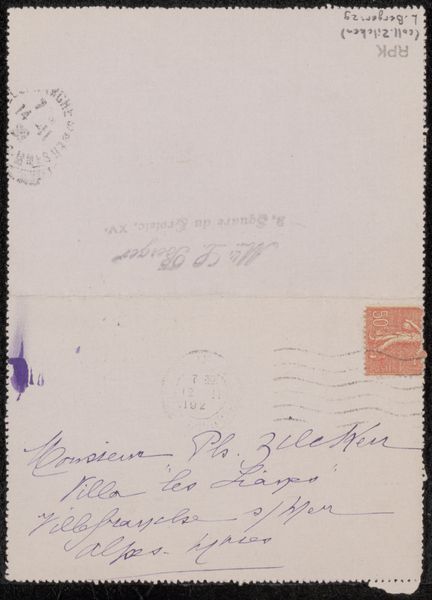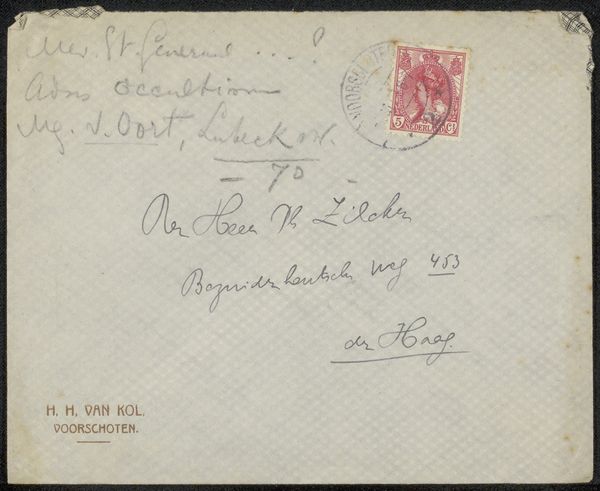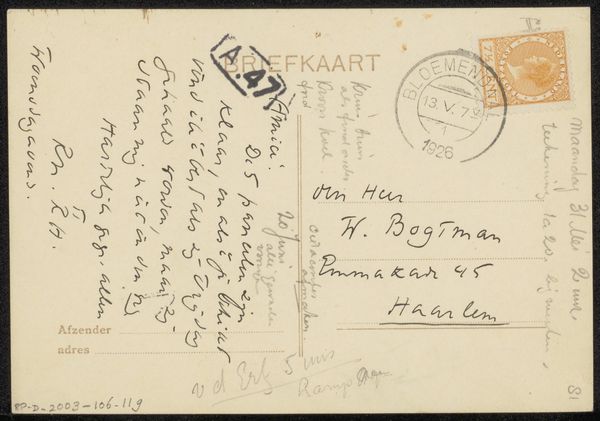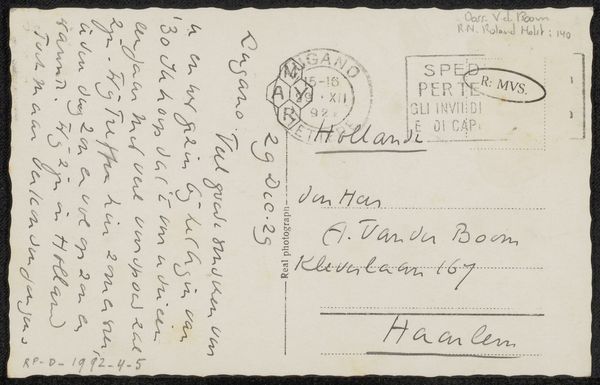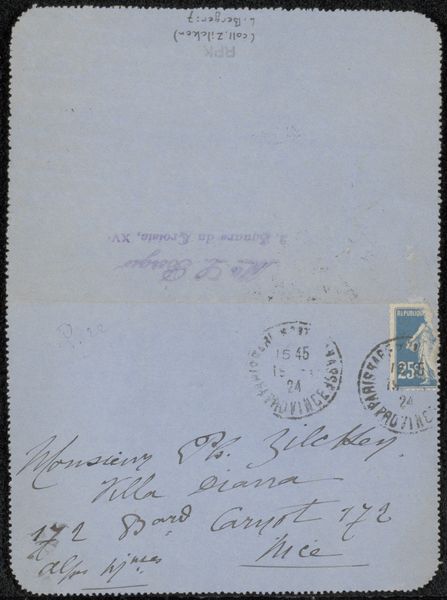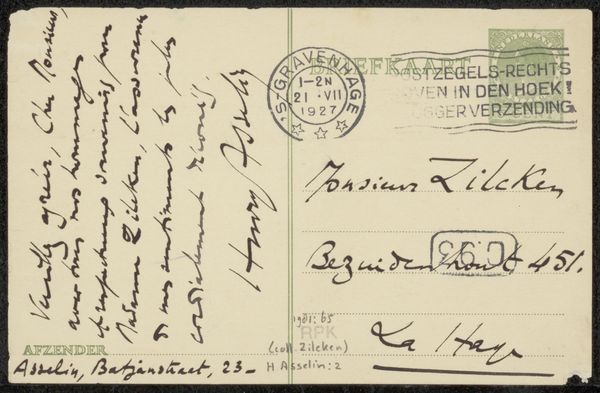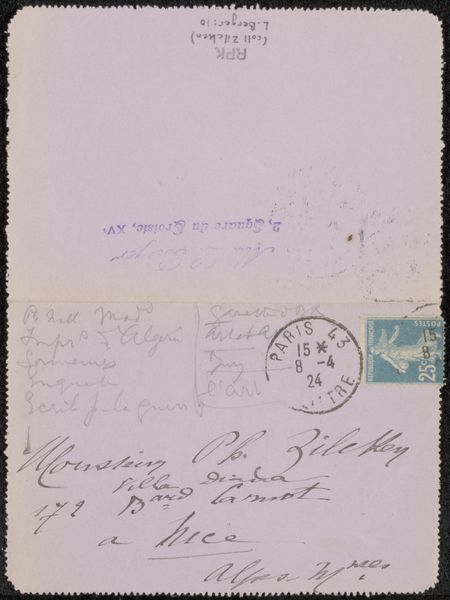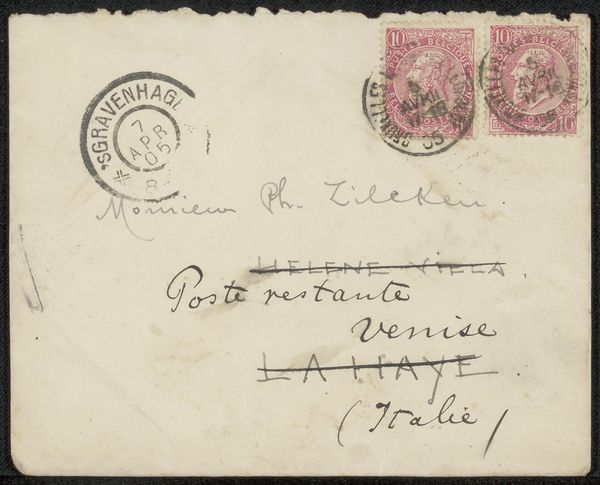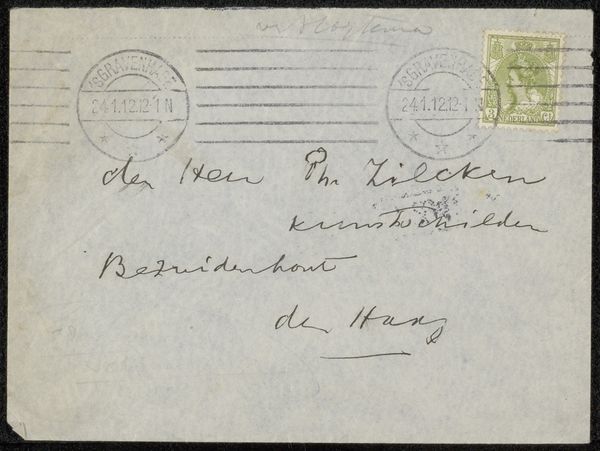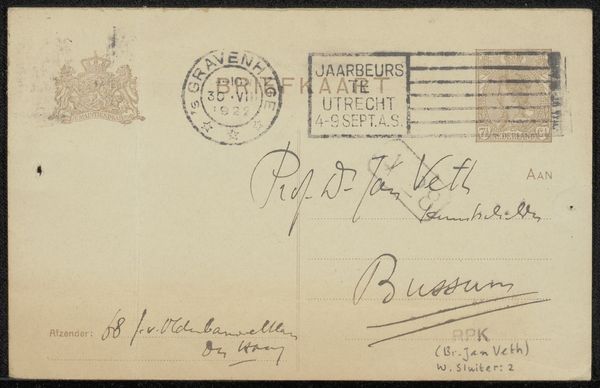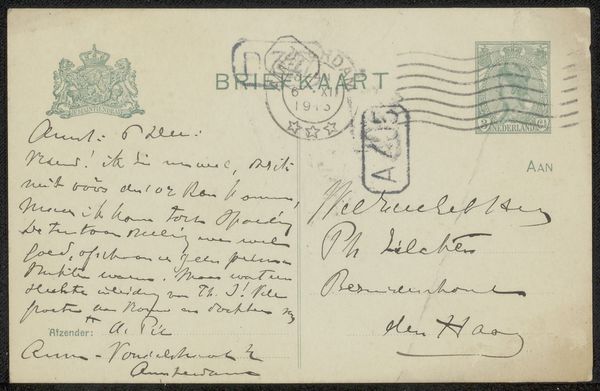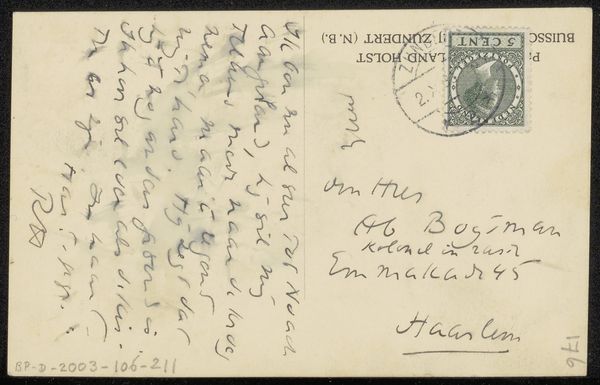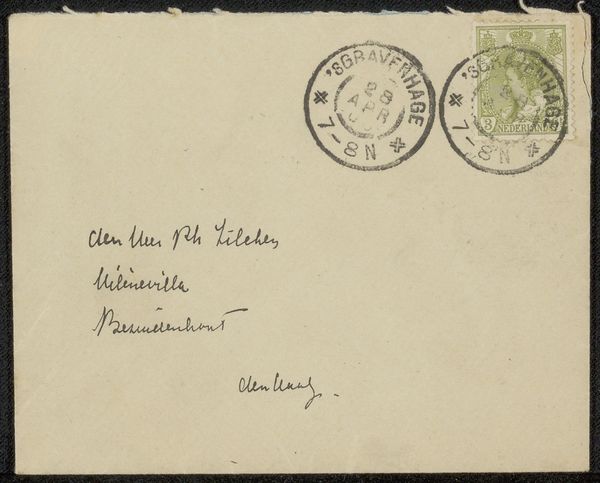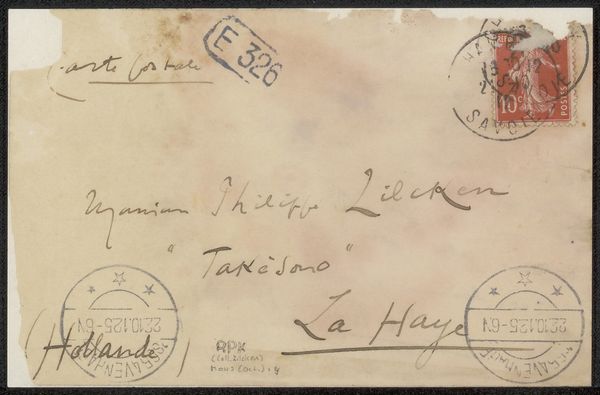
drawing, paper, ink, pen
#
drawing
#
quirky sketch
#
sketch book
#
hand drawn type
#
paper
#
personal sketchbook
#
ink
#
ink drawing experimentation
#
pen-ink sketch
#
ink colored
#
sketchbook drawing
#
pen
#
storyboard and sketchbook work
#
sketchbook art
Copyright: Rijks Museum: Open Domain
Curator: Willy Sluiter's "Brief aan Philip Zilcken," created likely between 1913 and 1917, is an ink and pen drawing on paper, now held at the Rijksmuseum. The subject is a letter addressed to someone named Ph. Zilcken in the Hague. Editor: At first glance, it seems mundane, a simple record. But there's a striking austerity here, the near monochrome and functional lettering make me wonder what's behind this rather dry, unassuming looking missive. Curator: Exactly! Its very ordinariness belies the intense socio-economic circumstances of its probable production, the First World War. Resources were strained; even artistic correspondence would be economical. The ink, paper, the handwriting itself become signifiers of wartime scarcity and labor constraints. Sluiter isn't creating high art here; it’s practical workaday communication. Editor: Beyond that practical surface, don’t you see echoes of social hierarchy within its imagery? The placement of the sender's name in the top-left implies some level of self-importance and perhaps even creative confidence. The act of addressing, the social expectation to conform and the almost bureaucratic form these missives would often adopt are all fascinating as social objects! The Hague of the time was, after all, the center for peace and justice, so you see so many layers within just the humble visuality of a posted letter. Curator: Perhaps, but isn't it just as likely an economy of expression from an established artist accustomed to the constraints of print? Even the placement of the stamp becomes crucial: who decided to spend the extra money to express higher importance in delivering the document. It would be revealing to know if it contained some valuable and personal communication Editor: Oh, certainly! Every deliberate choice becomes charged with intent and reveals a hidden context. Even this standard postal seal becomes emblematic. Consider also how we approach old letters; there is something beautiful and nostalgic as we reflect back to our roots, both personally and in a wider cultural context. Curator: And thinking about the preservation…it’s really quite fascinating. These modest items –letters, sketches – transcend their initial utility and transform into artifacts; witnesses of past social interactions and art processes Editor: Well said! This humble envelope, viewed through either lens, tells us about so much more than merely what information it held within.
Comments
No comments
Be the first to comment and join the conversation on the ultimate creative platform.
